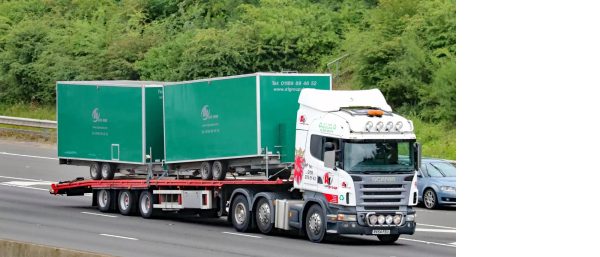Dealing with returns has always been part of the retail landscape, and a painful frustration. In fact, up until the last few years, this service has traditionally been enjoyed free of charge for the majority of online shoppers.
 However, due to an increased desire to reduce the cost impact on a retailer’s revenue, many retailers are now charging for returns. For example, since the pandemic began, several fast fashion retailers have taken up the practice. This is mainly due to the increasing popularity of ‘bracketing’ (buying multiple sizes with the intention of returning whatever doesn’t fit) and ‘wardrobing’ (buying clothes, wearing them for an event, then returning them for a full discount). It is for this reason some of the UK’s biggest clothing brands, like H&M, Boohoo and Zara are now leading the way in charging customers for returns. However, charging for returns is by no means limited to the fashion industry with businesses like THG also charging for returns on its luxury goods and dietary supplements.
However, due to an increased desire to reduce the cost impact on a retailer’s revenue, many retailers are now charging for returns. For example, since the pandemic began, several fast fashion retailers have taken up the practice. This is mainly due to the increasing popularity of ‘bracketing’ (buying multiple sizes with the intention of returning whatever doesn’t fit) and ‘wardrobing’ (buying clothes, wearing them for an event, then returning them for a full discount). It is for this reason some of the UK’s biggest clothing brands, like H&M, Boohoo and Zara are now leading the way in charging customers for returns. However, charging for returns is by no means limited to the fashion industry with businesses like THG also charging for returns on its luxury goods and dietary supplements.
Although, charging for returns may not be the golden ticket retailers think it is heading into 2024, with a recent poll by Trustpilot of 2,000 online shoppers showing 58 per cent don’t use retailers who charge to return items, with 67 per cent admitting a retailer’s returns policy influences how much trust they place in them. Yet with returns in the US expected to have risen in 2023 by 2%, and experts predicting yet another increase in 2024, it’s fair to assume similar results will follow here in the UK and that this issue isn’t going anywhere soon… So, to help alleviate the strain on retailers, Andrew Tavener, Head of Fleet Marketing in Europe, Descartes Systems Group explains how effective route planning and optimisation can improve returns management for retailers.
Improving your delivery and collections management
In the dynamic world of retail, staying ahead requires businesses to constantly evolve. One way to do this is to ensure your supply chain performance and returns management is up to scratch. This can be revolutionised with the use of scalable and advanced route planning and home delivery optimisation software. By integrating this technology into their operations, retailers can transform their supply chain performance and returns management.
Adopting certain technology in route planning solutions is also proving to be a game-changer for retailers. Route planning solutions help to optimise demand and collections capacity, along with the capability to improve service and productivity. However, the benefits extend beyond operational efficiency. It also reduces costs and streamlines the end-to-end handling of any returns. Electronic Proof of Delivery, for example, provides the retailer and consumer a real-time view of assets. This transparency with customers means that returns can be tracked and consumers feel more confident and satisfied with a retailer too.
When coupled with a warehouse management system (WMS), retailers are able to unlock more flexibility and agility too. An effective WMS enables retailers to inform customers the moment a returned item has been received, building confidence and rapport. Simultaneously, the system efficiently logs the item back into inventory, accelerating its approval for resale. The result of this is a significant 49% reduction in returns handling time, providing customers with a satisfactory experience and ensuring retailers have an updated inventory with minimal delays.
The sustainability concerns for shoppers
Enhancing the returns process is not just a business imperative; it’s a vital step in the right direction for sustainability. As governmental and regulatory bodies consistently apply pressure on retailers to progress sustainability, home delivery and sustainability are coming together in consumers’ minds too – with many shoppers increasingly considering sustainable delivery and returns options.
Descartes recent research shows and helps retailers understand not only how this convergence is changing consumers’ buyer behaviour and home delivery preferences; but also how they can take advantage of these developing preferences to help themselves and the environment. The study uncovered that many consumers care about the environment, and what retailers do about it does actually impact buying decisions. To illustrate this point, consider these key research statistics:
- 45% said that helping the environment is quite/very important in their daily lives
- 39% said that they always/regularly make purchasing decisions based upon the environmental impact of a company or a product
- 40% would buy more from grocers who demonstrated that their supply chains were more sustainable than the competition
- 50% were quite/very interested in environmentally friendly home delivery options.
Therefore, it is increasingly important for retailers to consider prioritising environmental considerations when offering both deliveries and collections. Returns not only have a damaging effect on the environment, it also creates unwanted damaging emissions. Nevertheless, even the slightest adjustments to operations can play a significant impact on the overall eco-friendliness of retail operations.
Moreover, while many retailers and delivery companies continue to make commendable investments in Electric Vehicles (EVs) to curb carbon emissions, it is essential to couple these efforts with intelligent route management for deliveries and collections. This ensures the deployment of the right vehicles to match capacity with demand in real-time regardless of the mix of vehicles in the fleet. By continuously optimising routes, retailers can enhance their fleet efficiency, leading to a 5-25% reduction in fuel consumption for petrol and diesel vehicles and extend the delivery capacity for EVs.
Conclusion
In the ever-evolving landscape of retail, the challenges posed by returns can be met with strategic solutions that not only enhance operational efficiency but also contribute to a sustainable future.
While the prospect of charging for returns is one option to address the financial issues posed by returns, the road less travelled involves a commitment to improving processes and customer experiences. By integrating intelligent route planning and optimisation tools, retailers can not only streamline their supply chain and returns management processes but also offer a robust, sustainability-led customer experience all year-round.
As consumers increasingly prioritise eco-friendly practices, embracing these innovations ensures that retailers not only meet current expectations and reduce costs, but also pave the way for a greener, more efficient future in the world of retail.
To find out more, please visit: https://routinguk.descartes.



